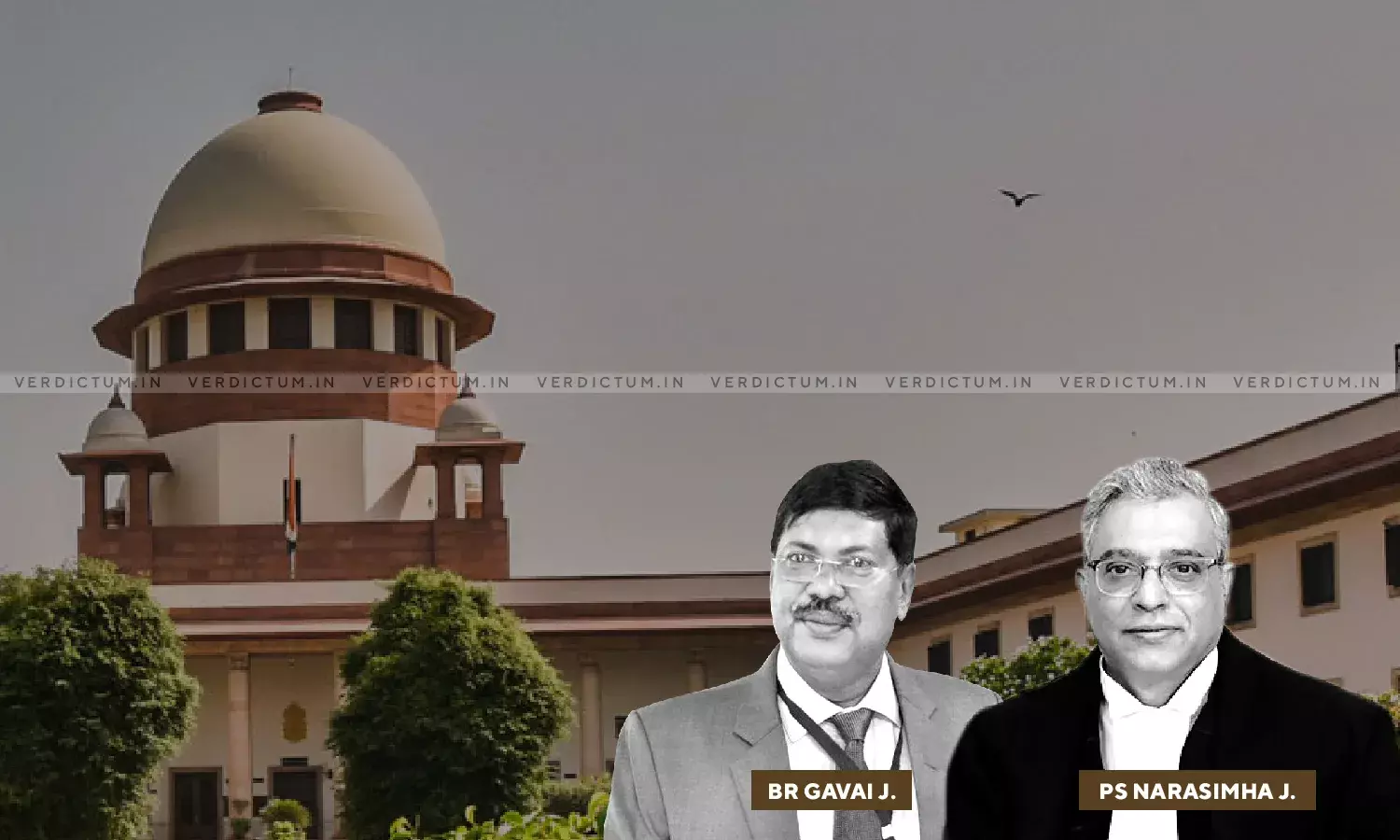Serious Inconsistencies In Evidence Of Witnesses - SC While Acquitting Murder Accused
The Supreme Court while acquitting the accused in a murder case has held that there were serious inconsistencies and discrepancies in the evidence of the prosecution witnesses and this was a case where the accused were entitled to benefit of doubt.
The Bench of Justice BR Gavai and Justice PS Narasimha observed, "In the present case, we notice that the trial court as and the High Court have failed to take into consideration the vital discrepancies and inconsistencies in the evidence of the prosecution witnesses. From the perusal of the evidence as well as the findings of the trial court itself, it is clear that Omveer (PW1) cannot be said to be an eye witness. Though, Inder (PW2) isan injured eye witness, there are serious discrepancies and inconsistencies with regard to time of the injuries sustained and time at which he was medically examined."
The Court also opined, "Though independent witnesses were available, the prosecution has failed to examine them. We therefore find that this is a case wherein the appellants are entitled for benefit of doubt."
As per the case of the prosecution when deceased Prakash and his wife were going to extend invitation for marriage of their daughters, near the house of accused Deepi, all the accused persons who were hiding themselves inside the house, came out carrying weapons. All of them started assaulting deceased Prakash and threw him on the brick road. The brother of deceased Prakash, his sister and his wife came forward to save the life of deceased-Prakash but accused persons assaulted them also.
Senior Advocate Rajul Bhargav appearing on behalf of accused persons had submitted that there were material contradictions and inconsistencies in the prosecution evidence.
Additional Advocate General for State, Garima Prashad, submitted that merely because the prosecution witnesses were relatives of the deceased, their testimonies could not be discarded.
Senior Advocate, S.R. Singh, appearing on behalf of the first informant contended that the Supreme Court will not normally enter into reappraisement or review of the evidence unless the decision of the High Court is vitiated by error of law or procedure.
The Supreme Court noted many improvements in the deposition of one prosecution witness- Omveer. The Court further noted that there were serious discrepancies with regard to the medical examination of prosecution witness-Inder who was the brother of the deceased.
In that context the Court observed thus "In the injury report (Ex.P7), the time of examination is stated to be 10.20 pm. From the evidence of Omveer (PW1) and Inder (PW2), it is clear that after the incident occurred, they had gone to Police Station Shergarh and they were in the Police Station Shergarh from 10.00 am to 11.00 am. In his evidence, Inder (PW2) has stated that he has reached the hospital at 12.00 o'clock and that his medical checkup was done during day time."
Further the Court noted that Dr. Anoop Kumar who had purportedly medically examined the victims had admitted that the medical examination was done at 10.20 pm but during his reexamination, he stated that due to some mistake, 10.20 pm was mentioned in the medical examination report and actually, it was done on 27th April 2002 at 10.20 am.
Therefore the Court observed that there were serious discrepancies and inconsistencies with regard to time of the injuries sustained by Inder and time at which he was medically examined and that Dr. Anoop Kumar, in his evidence, had changed his stance on several occasions.
Thus the Court acquitted the accused and allowed the appeals.
Cause Title- Khema @ Khem Chandra Etc. v. State Of Uttar Pradesh
Click here to read/download the Judgment



